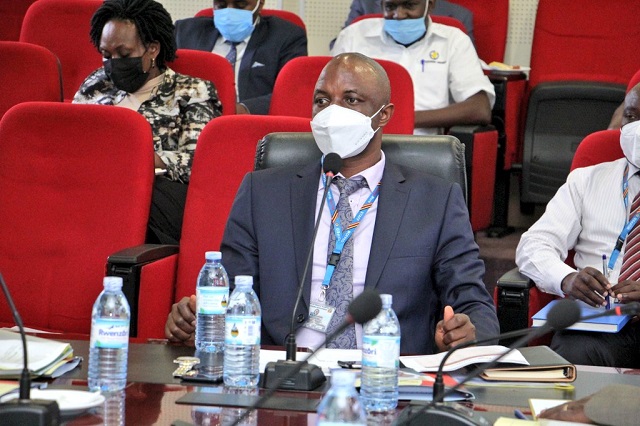
Kampala, Uganda | THE INDEPENDENT | As the government begins to peg its development agenda on the lower administrative units, it has noted challenges it has to deal with to avoid a repeat of past failures.
These challenges include clashes with communities or landlords over land that the government targets for its development projects, project delays by departments and local governments and disconnect between policy development and policy implementation.
And as the time for the debating and passing of the 2022/23 budget by parliament nears, the Ministry of Finance, Planning and Economic Development has directed all sectoral committees of Parliament to finalise with the Budget Framework Paper and report to the Budget Committee by January 20th. The framework paper was tabled before parliament on December 21.
Following this, the Secretary to the Treasury Secretary Ramathan Ggoobi started consultations and tours at the district or local government level in preparation of the ground for a local government-based development plan.
These consultations also involve meeting Local Government accounting officers to according to him, address some of the issues affecting service delivery in local governments.
Ggoobi is mainly concerned about issues like low absorption of development budget and the related late procurement, which he says affect value for money in service delivery.
Others are “dismal performance” of USMID (Uganda Support to Municipal Infrastructure Development) Program, unauthorised solicitation of off-budget support and delayed payment of salary pension and gratuity.
He also noted the abandonment of projects by contractors, as well as partial or non-recruitment of staff.
Last year, the government released an initial 200 billion shillings to start the implementation of the Parish Model of Development, money which was partly aimed at creating the Parish Development Committees and an implementation unit, recruitment of parish chiefs and collection of data vital to implementing the model.
The money targeted recruitment of 5,192 to 10,594 required Parish Chiefs.
Ggoobi told Local Government Accounting Officers that full implementation of the Parish Development Model will depend on the readiness of local governments, to avoid “having a false start.”
Now the ministry of finance reports that by the end of November 2021, 9,654 parish chiefs out of the targeted 10,594 had been recruited, giving a shortage of 940 chiefs.
Ggoobi has also asked the CAOs to officially write to him indicating critical issues that must be addressed to improve service delivery in Local governments with proposed practical solutions.
“I will be glad to address them, we should avoid excuses,” he said urging that the accounting officers ensure that they allocate resources to the priority areas in the budget next financial year 2022/23.
“Those who fail to budget for critical items next financial year will not receive any supplementary budget and will take personal responsibility,” he warned.
One other issue that has dogged the implementation of government programs especially at local government level is the land issue.
Some projects have stalled with the land owners laying claim because of non-payment or lack of compensation, or even alleged fraudulent acquisition.
The Finance PS says that he has received requests for money by local governments to save properties like schools and health centers facing confiscation by claimants on the land.
He says going forward, project development will only take place after clearance of all issues regarding the land.
“No new government project will commence without clear proof of land ownership. The titling of land should be prioritised by local government,” he warned.
On local governments hosting artisanal mining, he promised continuous government affirmative action to promote local mining communities to modernise and generate more income.
Ggoobi says it is the role of government to ensure healthy working conditions for the communities. The miners are currently concentrated in greater Bushenyi, greater Mubende, Busia and Busoga areas, as well as in Karamoja, mainly mining gold.
“We are right now in the budget process for next financial year 2022/23, if there is anything we can do, then it should be done,” Ggoobi said, also proposing an advisory think-tank of experts to advise his ministry on a long-term way forward.
“I will be convening a meeting in the coming days with stakeholders including responsible ministries and artisanal miners to address some of the challenges such as acquisition of exploration licenses, access to machinery and infrastructure development in the area,” he assured the miners.
On the health effects of gold and the mining techniques on the people, Ggoobi said that it is the tragedy of working in an unregulated and unsupported sector.
“Issues like occupational safety and health were left in statute books as young people, particularly women continued to get exposed to dangerous substances like mercury, and we are going to address them,” he vowed.
The ministry of finance is due to host an Economic Growth Forum on Thursday, which he says is also aimed at informing how and where to apply resources for development.
*****
URN
 The Independent Uganda: You get the Truth we Pay the Price
The Independent Uganda: You get the Truth we Pay the Price



